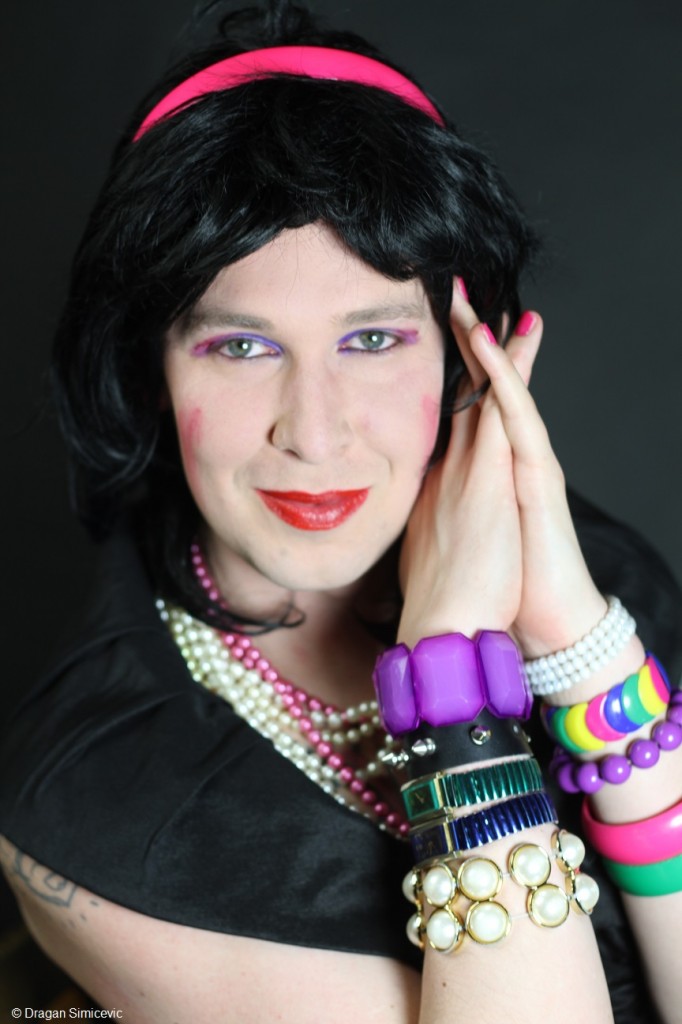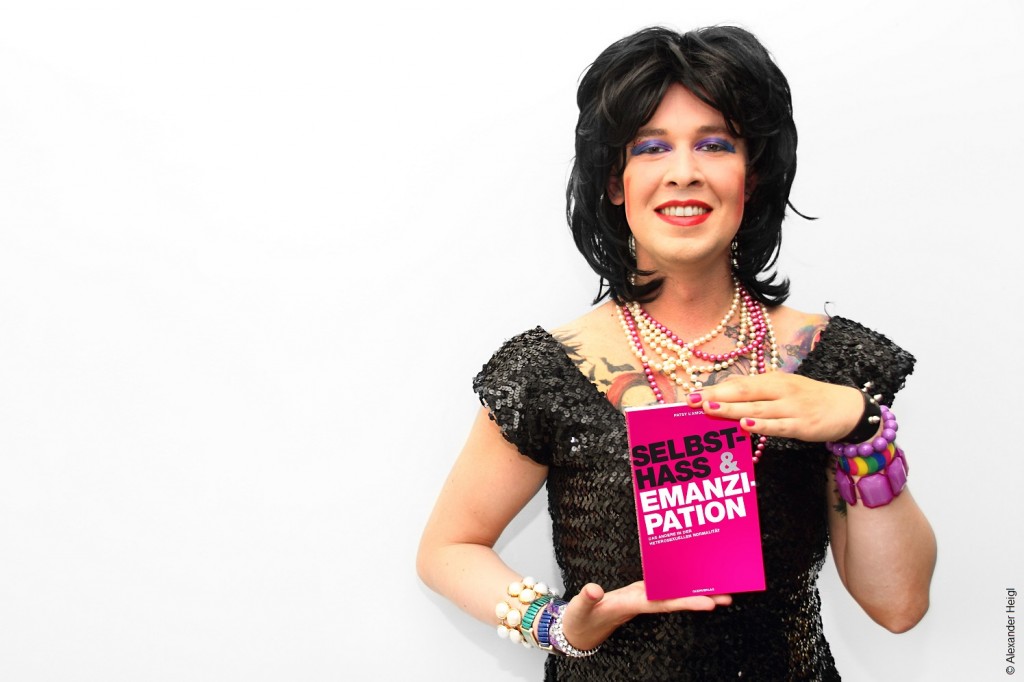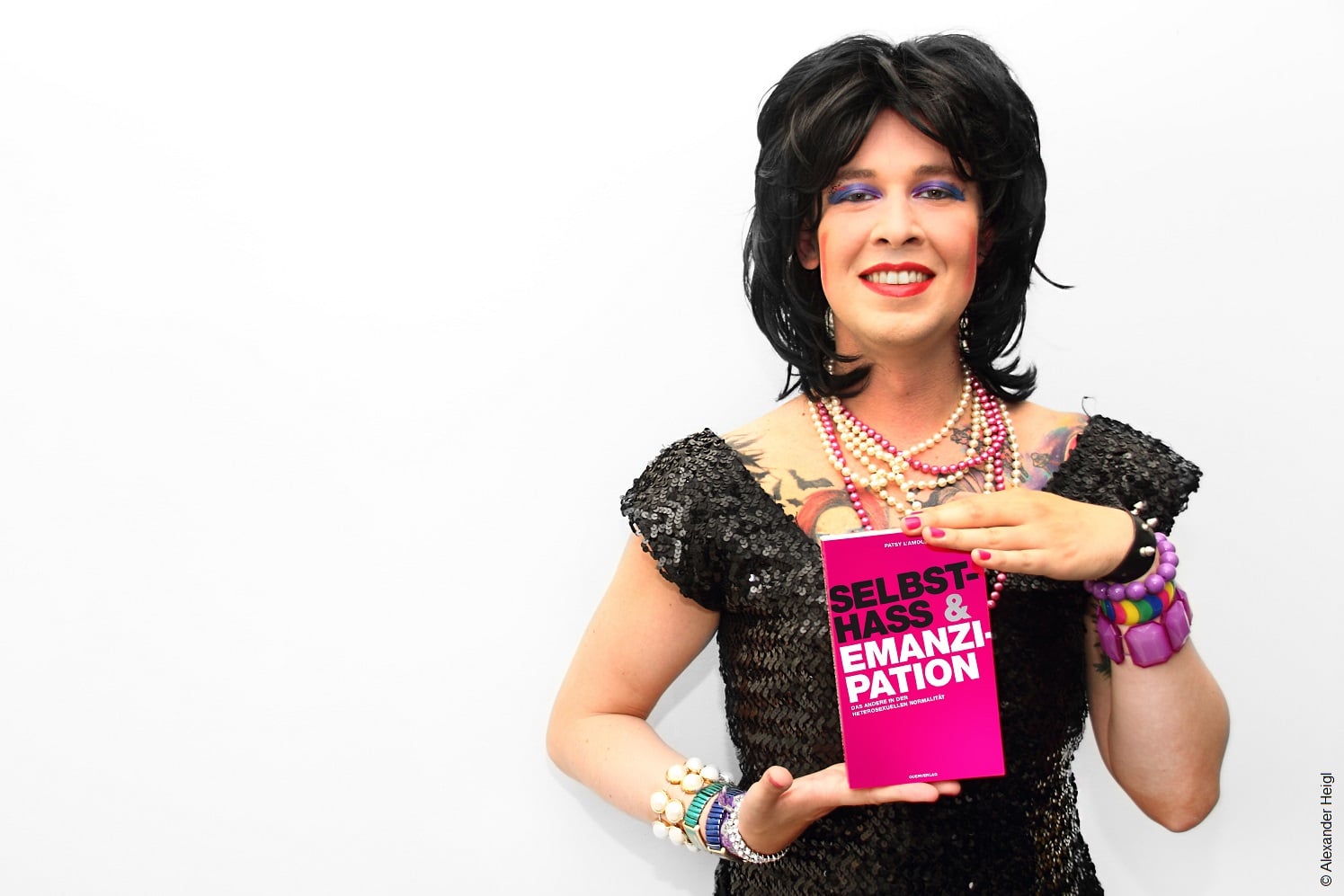Patsy L'Amour laLove is not only the host of Berlin's unquestionably trashiest and most exciting gay show. As a researcher, the bustling political faggot also deals with questions of the gay present and movement. A conversation about her book "Selbsthass & Emanzipation", about marginalisation on gay dating platforms and about the so-called "normal".
Three years ago, you worked at the Berlin SchwuZ with "Polymorphia" has established itself as a trashy and politically egged fag show. Which will surprise some people: You also publish your academic work under the name Patsy L'Amour laLove and now also the book "Selbsthass & Emanzipation", which you edited.
I'm always Patsy, both in my family and private life and on stage or when I'm doing research at university. I've also had the name entered on my identity card.
So, like most drag queens, you don't separate your real name from your stage name?
I'm more in the tradition of the political dancers of the 70s who also used their names in everyday life - like Freifrau Mechthild von Sperrmüll or Baby Jane Hudson. Apart from that, I just like the name. It's a wonderful way for me to live out my pop and kitsch side.
On the cover of your book, "self-hatred & emancipation" are two terms that don't really exude much happiness. Do you also recognise self-hatred in yourself or have you already overcome it?
You can't really talk about overcoming self-hatred. At best, society could overcome its trans* and homophobia, which plants this unnecessary form of shame and self-hatred in people. I am convinced that no life is without conflict, without shame, without rejection. Pointing this out is very important to me, especially in the political debate about self-hatred. This means that flat accusations against individuals - "You only hate yourself when you say this or that" - are cancelled out from the outset.

So there are no advanced emancipated people who have overcome this phase of self-hatred?
I think if you are always aware of this problem, you will also act more cautiously and fairly when dealing with others in political discussions.
How does self-hatred manifest itself in everyday gay life?
You simply have to enter "fag" or "faggy" in the keyword search on PlanetRomeo and then look at the context in which these terms are used in the profiles displayed. They are usually mentioned in connection with fat people, old people and Asians. It's not about writing what you like and what you think is cool, but what the person in question hates, finds disgusting and therefore rejects.
Does this mean that you reject certain personality traits because you secretly harbour them and don't want to be associated with them?
I find it interesting that you use the term "secretly" here. Because it's actually not secret at all, it's actually very obvious: namely that a gay man is rejecting another gay man because in his eyes the latter is to is gay. This phenomenon is familiar from many marginalised groups and minorities. It is always about something delusional in which one's own parts are rejected in another. Such forms of marginalisation and offensive rejection are not only experienced by gays who are considered to be gay, but also, for example, HIV-positive and leather guys, as well as gays who do not conform to the general idea of attractiveness or who live promiscuously. Ultimately, it is about striving for normality in order to make the abnormal - homosexuality - as invisible as possible.
The perfect homosexual man - one could conclude - is young, sporty, good-looking, partnered, monogamous and masters "straight acting". In other words, he passes for straight everywhere.
The term "straight acting", as it is also used in many dating profiles, contains an assertion that can never work. The term itself already makes this clear: it's about "acting". You only pretend to be. This conceals the desire not to be gay after all, but this cannot succeed. Because inside you are and remain a gay man who describes himself on PlanetRomeo as "straight acting" in order to have sex with other men. This is exacerbated by the cult of youth and the beauty ideals of the gay subculture, which also create normative pressure. If you don't conform to social expectations - namely to be heterosexual - then you at least want to be a beautiful, desirable and therefore likeable gay man.
Actually, one would expect that in times of openly gay celebrities, registered partnerships and social recognition of gays and lesbians on a broad level, being gay is no longer a big issue. However, one often gets the impression that only a middle-class, conformist life is desirable and therefore worth striving for.
Apparently, there is only a certain image of homosexuality that causes no problems for the public. This has to do with the fact that society's tolerance is in reality only a false tolerance, behind which the old hatred of homosexuality, of everything that is different, continues to exist. You can see this very clearly in the AfD and other right-wing groups: The hostile slogans that are becoming acceptable again! And you can also see it in the fact that coming out is still a problem for gay, lesbian and trans* young people.
Would it be possible to change our society to such an extent that a teenager could discover and live his gayness without having to feel ashamed?
Society would have to change radically for this to happen, which is why it will probably remain a utopia. Nevertheless, I still cling to the utopia that people can be different - even without fear. That they can accept other people in their otherness and at the same time show their own otherness with self-confidence. That actually sounds quite banal and that's why I think it's possible.
Patsy L'Amour LaLove (ed.): "Selbsthass & Emanzipation. The other in heterosexual normality". Querverlag Berlin, 263 pages, 16.50 euros. (With contributions from Patsy L'Amour LaLove, among others, Dirk Sander, Panne Pepper, Daria Majewski, Erik Meyer, Til Amelung, Andrea Trumann, Benedikt Wolf, Martin Dannecker, Polly Puller, Manuela Kay).











